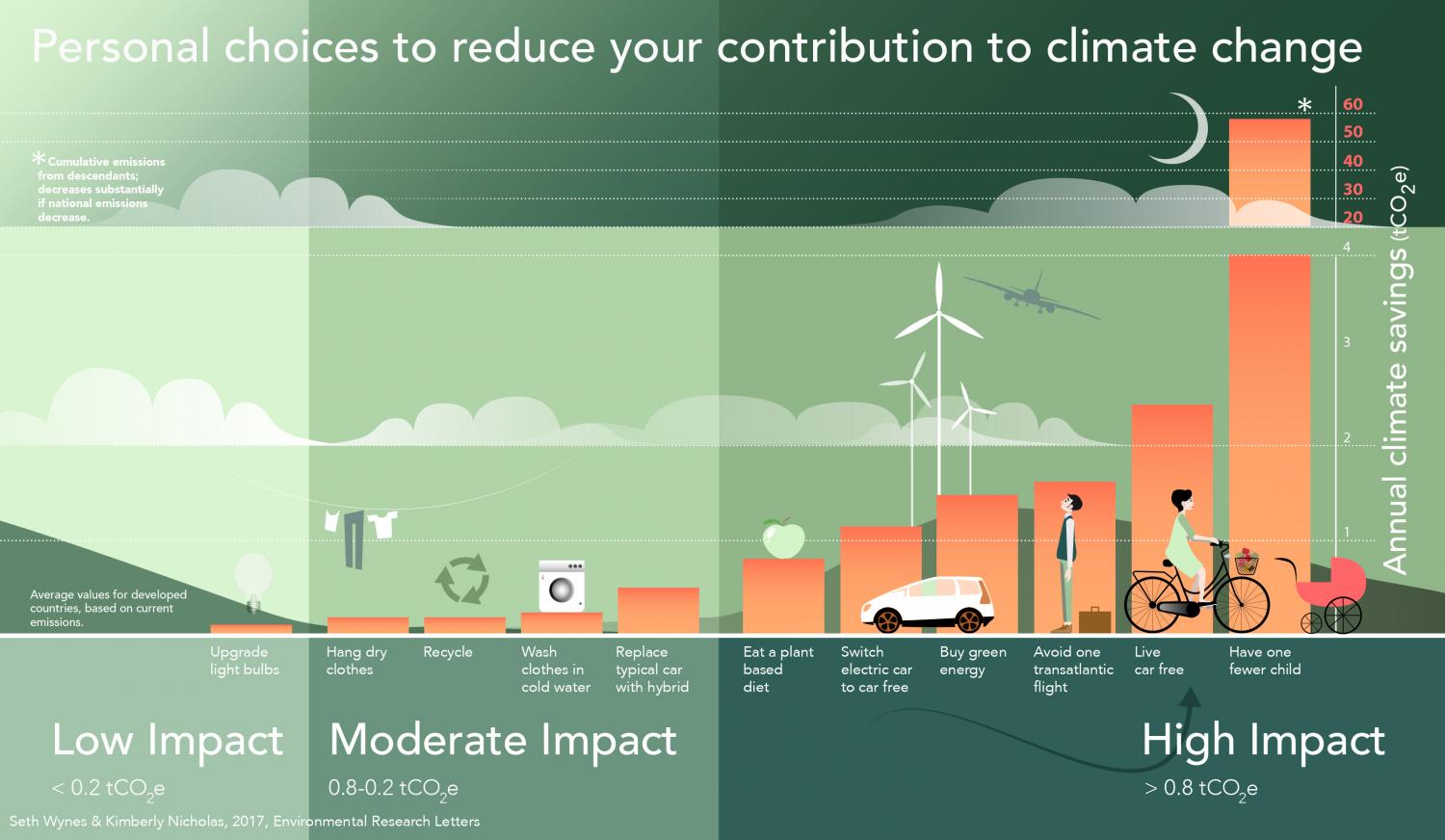This infographic shows that the most effective thing people can do to combat climate change by a large margin is have one fewer child. So why isn't there a push among the scientific community and environmental organizations to get this information to the public and convince everyone to have one fewer child?
Probably because it is too personal for people and would not go over well politically or well in the way of donations. These are some of the same reasons there is not a huge effort by them to get everyone to switch to a plant based diet.

 m.phys.org
m.phys.org

Probably because it is too personal for people and would not go over well politically or well in the way of donations. These are some of the same reasons there is not a huge effort by them to get everyone to switch to a plant based diet.

The most effective individual steps to tackle climate change aren't being discussed
Governments and schools are not communicating the most effective ways for individuals to reduce their carbon footprints, according to new research.

